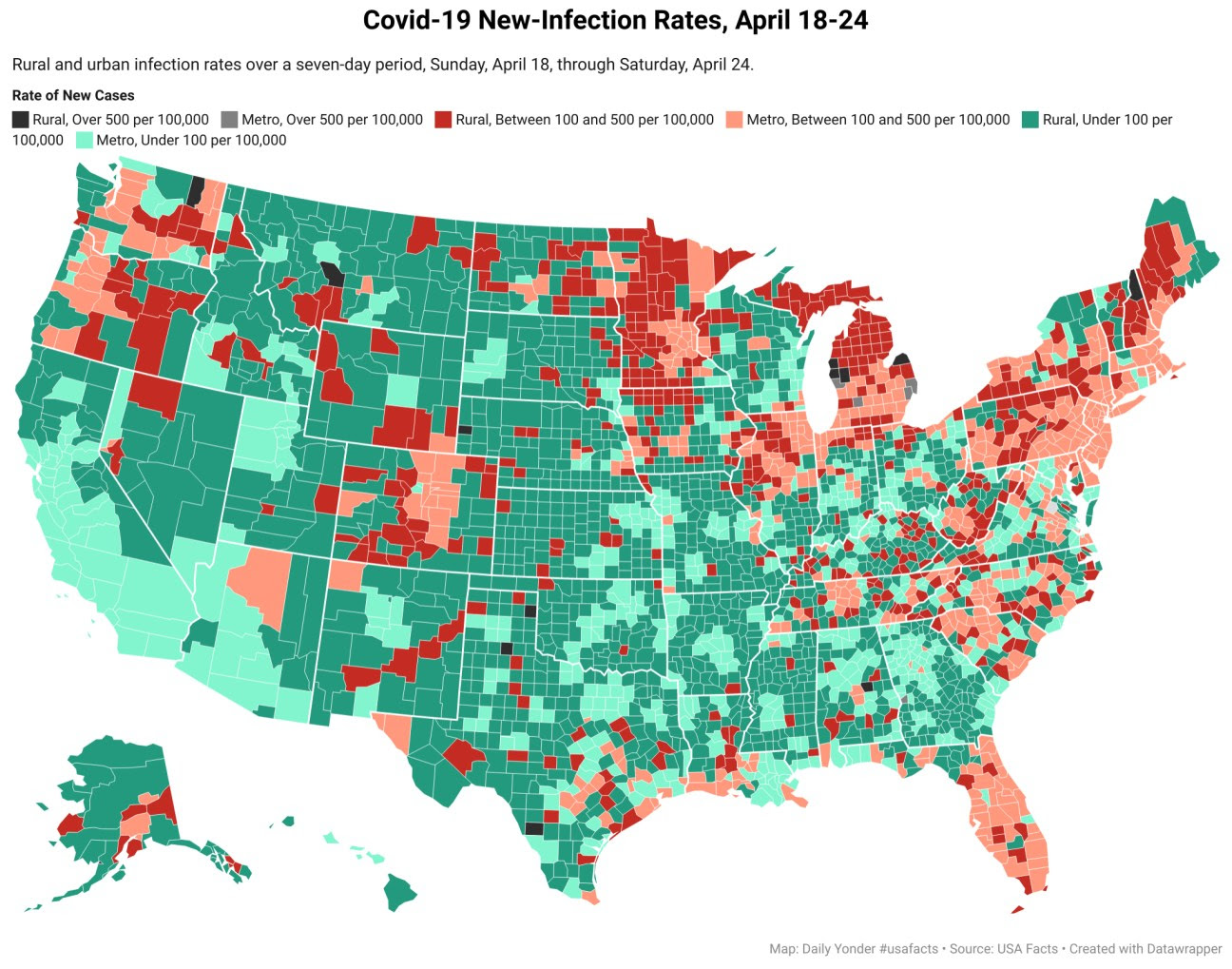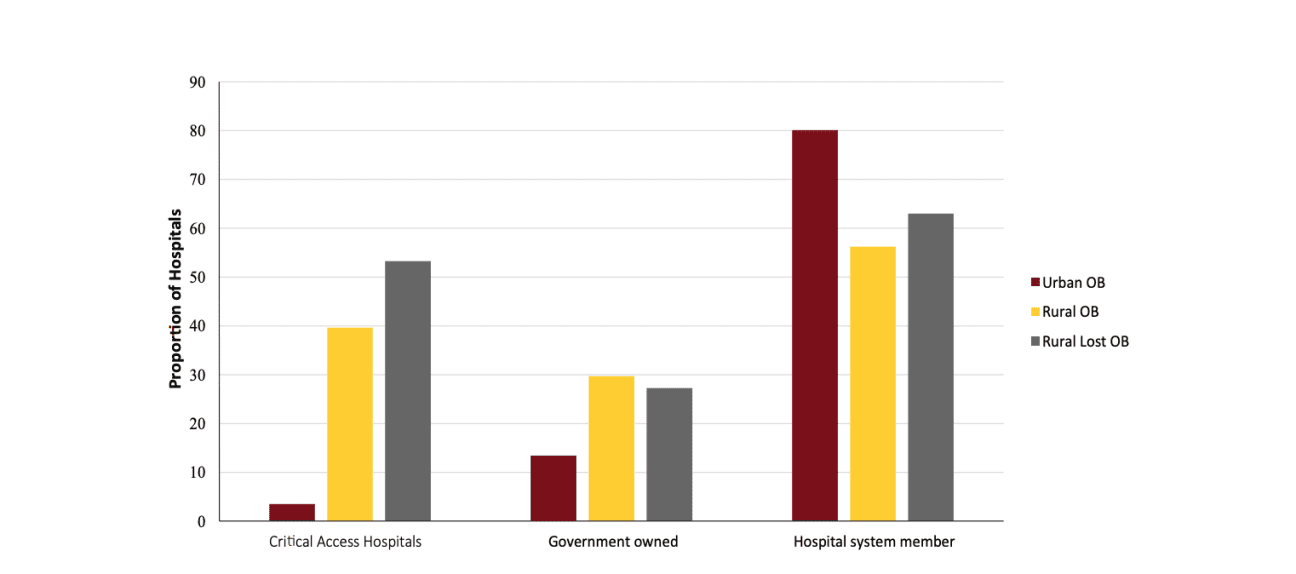- Senator Baldwin Introduces HSHS Act to Protect Communities from Hospital Closures
- What to Know about Smoke, Heat and Health
- Tribal Partnership With UW-Madison Combines Ag Research With Indigenous Food Knowledge
- The Rewards of Working as Rural Docs
- Request for Information (RFI): Evolving the Network of the National Library of Medicine
- Dental Therapists, Who Can Fill Cavities and Check Teeth, Get the OK in More States
- Colorectal Cancer Is Rising among Younger Adults. Some States Want to Boost Awareness.
- Rural Hospitals Built During Baby Boom Now Face Baby Bust
- Food Stamps Go Further in Rural Areas — Until You Add Transportation Costs
- CMS Announces Resources and Flexibilities to Assist with the Public Health Emergency in the State of Texas
- CMS Proposes New Payments for Digital Health Under CY2025 PFS Draft Rule
- Improving Public Health by Strengthening Community Infrastructure
- Biden Harris Administration Proposes Policies to Reduce Maternal Mortality, Advance Health Equity, and Support Underserved Communities
- Nearly Half of U.S. Counties Don't Have a Single Cardiologist
- Randolph County, Ill. Turns Unused Part of Nursing Home Into State-Of-The-Art Behavioral Health Center
Final Recommendation Statement: Screening for Hypertension in Adults
The U.S. Preventive Services Task Force released a final recommendation statement on screening for hypertension in adults. The Task Force recommends that clinicians screen all adults for hypertension. View the recommendation, the evidence on which it is based, and a summary for clinicians, here. The final recommendation statement can also be found in the April 27, 2021, online issue of JAMA.
Faith Communities Play a Role in Overcoming Vaccine Hesitancy
Findings in PRRI/Interfaith Youth Core’s national research survey project, Religious Identities and the Race Against the Virus: Engaging Faith Communities on COVID-19 Vaccination, make the case for faith-based approaches in increasing vaccine uptake and for the inclusion of these critical health assets in public health strategies. Read the full report, executive summary or replay last week’s webinar presentation.
Medicaid Enrollment Up, CHIP Enrollment Down
During the Public Health Emergency Declaration, Medicaid enrollment in Pennsylvania has increased by 14 percent, adding an additional 416,000 enrollees for a total of 3,247,991 in March 2021. While Pennie has extended a Special Open Enrollment Period until Aug. 15, 2021, and offered more opportunities for additional tax credits to lower premiums, Medicaid is still a viable option for many consumers. Enrollment in the Pennsylvania Children’s Health Insurance Program (CHIP) has decreased by 12 percent due to the transition of children to the Medicaid Program.
New Pennie Assister Reporting Tool
Beginning May 1, 2021, Pennie Enrollment Assisters will begin using a new reporting tool to record enrollment assistance. All enrollment assistance should be reported weekly using this new Pennie Assister Reporting Tool Link. The original reporting tool will only be available until May 7 for assistance provided in the month of April. Enrollment data captured in the Pennie system has been distributed to Pennie account managers and is available on the PACHC Outreach and Enrollment Slack Page.
Pennsylvania Re-Expanding Vaccine Provider Network
COVID-19 vaccines will be sent to more providers in Pennsylvania, widening the distribution network to include doctors, small pharmacies, and others as part of the effort to overcome lingering hesitancy among residents who have yet to get the shot. The Department of Health allocated more than 295,000 doses to 383 providers, up from 225 providers that received shipments last week. The state is gradually adding providers after narrowing the vaccine administrator cohort to hospitals, FQHCs, and pharmacy chains. Now, as demand for the vaccine begins to slow, the state is increasing focus on hard-to-reach areas and populations. Gov. Wolf said more providers will be added in coming weeks “as we keep moving out from big facilities” and “figure out how we can get closer to people, which means putting it in the hands of people you trust.” Pennsylvania now ranks 10th in the nation in percent of population that has been vaccinated. The commonwealth has administered first doses of COVID-19 vaccines to about 48% of its eligible population of everyone 16 and older and more than 5.2 million people have received at least their first dose.
Pennsylvania Updates COVID-19 Vaccine Dashboard to Highlight Race and Ethnicity Data by County
The Pennsylvania Department of Health announced the latest update to the COVID-19 Vaccine Dashboard. This latest update to the dashboard can be found on the second page of the COVID-19 vaccine dashboard. The update displays a county-specific view of vaccination demographics by race, ethnicity, gender, and age. The updated data also includes a county ranking of the percent of residents in each county that has received at least one dose of a vaccine. For more information on DOH’s efforts to promote justice, mitigate health inequities and promote transparency during the COVID-19 pandemic, visit the Health Equity and COVID-19 page.
State to College Students – Get Vaccinated Wherever You Are
The Pennsylvania Department of Health is encouraging vaccine providers to work with college students to ensure they get their full set of vaccinations. If it’s not possible for a student to receive both doses at the same location because they are returning home at the end of the semester, DOH says providers at the home location should work to ensure the college student gets fully vaccinated using the same vaccine they received as their first dose. DOH will support providers in these requests for second doses. DOH expects that numbers may not properly align, so encourages providers to include an explanation in the notes when filling out the second dose survey and report the data in PA-SIIS. Students should remember to bring their vaccination card with them to their second dose appointment.
Report: As Obstetrics Units in Rural Hospitals Close, Black Rural Moms and Infants Face Higher Mortality Rates
Rural Infections Fall by 15%; Rural Vaccination Rates Lag in Two-Thirds of States

By Tim Murphy and Tim Marema
Most rural areas are continuing to see improvement in new cases and deaths. But the vaccination rate in rural areas is failing to keep pace with the urban rate in most cases.
Read more

Local Governments Plan for Direct Aid Infusions, Await Exact Guidance

By Olivia Weeks
Waiting for more guidance on how to spend the federal aid money, counties have a “laundry list” of steps they can accomplish to hasten funds disbursement.
Read more

